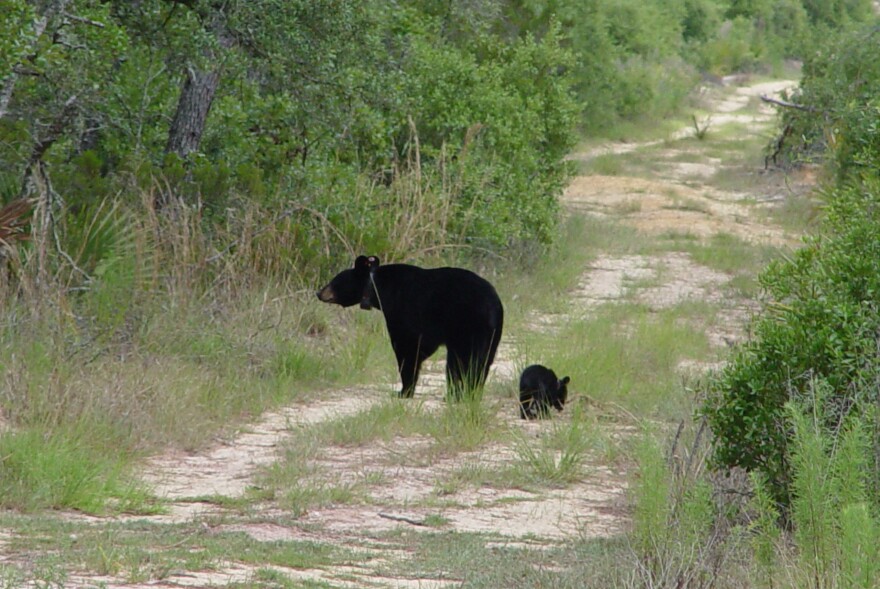Rules for the state's first bear hunt in more than 20 years have been published as the Florida Fish and Wildlife Conservation Commission is expected next month to give final approval to the hunt.
The posting of the rules came as the Humane Society has reached out to Gov. Rick Scott to halt the pending hunt because the commission has yet to determine how many bears are in Florida.
"This is very premature," said Kate MacFall, the Humane Society's Florida director. "They haven't even finished the count. They don't even know about the bear population."
The society has not heard back from Scott.
The proposed rules were published Tuesday in the Florida Administrative Register and outline how the hunt is expected to occur in four regions of the state starting Oct. 24.
The hunt is considered one way to control the bear population as Florida has seen a growing number of bear and human conflicts.
The wildlife commission on April 15 gave tentative approval to the hunt and is expected to take a final vote the week of June 22 in Sarasota.
The proposed rules were issued after two black bears, both estimated to weigh more than 400 pounds, were killed this month in separate collisions with cars outside Micanopy and Hawthorne, both in Alachua County.
Opponents of the proposed hunt have argued the state should consider relocating problem bears and that people need to be held more responsible for leaving out unsecured food and trash that attracts bears.
"It's a trash problem," MacFall said. "The bears are attracted to trash, and that is where the focus should be, large-scale trash management."
State lawmakers this spring approved a bill (HB 7021) that would in part increase penalties for people charged a fourth time with feeding bears and alligators not in captivity. The charge would be a third-degree felony. Currently, a fourth offense of illegally feeding wildlife within a 10-year period is a first-degree misdemeanor.
The bill has yet to be sent to Scott.
The hunt, meanwhile, is expected to last between two and six days, depending on when quotas are reached in the regions: the eastern Panhandle, Northeast Florida, east-central Florida and South Florida.
Diane Eggeman, director of the commission's Division of Hunting and Game Management, said the agency expects to have hunt quota numbers ready for the commission to approve in September.
"We should have the new estimates from the south and central bear-management units sometime this summer," Eggeman said. "There is a chance that they'll be ready by the June meeting, but that is unlikely."
The hunt will target less than 20 percent of the population in the four bear-management areas.
Black bears were placed on the state's threatened list in 1974, when there were between 300 and 500 across Florida. At the time, hunting black bears was limited to three counties. In 1994, the hunting season was closed statewide.
In moving forward with the plans for the hunt, the state commission has used 2002 numbers, which estimate there are a combined 2,500 black bears in the four regions.
Under the proposed rules, the cost of the hunt would be $100 for Floridians and $300 for non-Floridians. There had been talk by commissioners of lowering the fee for Florida residents to $50, as it is unknown how many will pay to join the hunt.
Each hunter would be limited to one bear, and the kill would have to be registered and tagged within 12 hours.
Also, hunters would be prohibited from killing bears within 100 yards of active game-feeding stations.
© 2015 The News Service of Florida. All rights reserved. Posting or forwarding this material without permission is prohibited.




